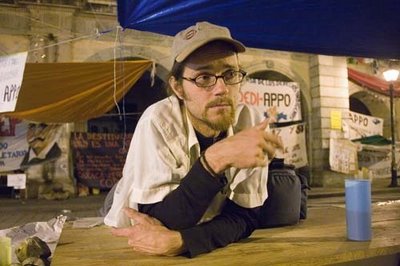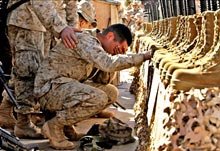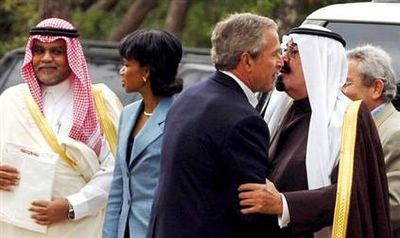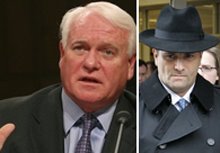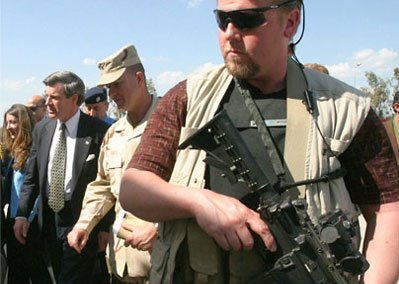Ian Black, Middle East editorSaturday March 24, 2007
The GuardianAlthough British and US military and diplomats often complain of Iranian support for insurgents in Iraq, there is no "smoking gun" to prove it, a senior British officer in Basra admitted yesterday.
Lt Col Justin Maciejewski said he could not prove Iranian interference in the southern Iraqi city, where UK troops come under regular mortar and rocket attack. But community leaders had told him Iranian agents were paying Iraqis $500 a month (£254) to carry out attacks.
"All the information we are getting from the locals ... is that the vast majority of the violence against us is inspired from outside of Iraq and the people here very much believe that that is Iran," he told BBC Radio 4's Today programme. "There is nothing I have seen that would disprove what they are telling me."
He said the "modern and quite sophisticated weaponry" could not be old munitions left over from the Iran-Iraq war. Both the US and Britain have accused Iran of supplying armour-piercing explosive devices detonated by infra-red triggers, but they have been unable to prove it.
Iraqi militia chiefs admit that hundreds of their fighters have crossed the poorly-guarded border into Iran for training by the Al-Qods [Jerusalem] Force, a branch of Iran's Revolutionary Guard that is believed to have trained guerrillas in Lebanon, Bosnia and Afghanistan. The US Central Command claims there are 150 Iranian agents in Iraq, though this is impossible to confirm. "There are very few Iranian nationals in Iraq, or at least very few carrying Iranian documents," one diplomat said. "But they have so much influence on the ground, they are able to operate effectively at arm's length."
An Iranian opposition movement, the National Council of Resistance of Iran, claims Tehran pays 31,690 Iraqis under Al Qods command. Most are affiliated with the Badr Brigade of the Supreme Council for the Islamic Revolution in Iraq, which was based in Iran until the overthrow of Saddam. The Badr Brigade has been accused of operating death squads targeting Sunni Muslims. The NCRI even named the commanders of Iranian units in Iraq and procedures for delivering arms and cash across the border. The Headquarters for the Reconstruction of Iraqi Holy Sitescorrect was a regular channel.
But Iran's involvement in Iraq is not all about mischief-making. Economic ties are close, and cash from Iran pours into the Shia holy cities of Najaf and Kerbala. Iran sent a minister to join the US and Syria in recent talks on security in Baghdad. Indeed, experts argue, Iran has a strong interest in stability. "But they can't resist the temptation to make things difficult for the Brits," said the diplomat.
"I don't doubt that the Iranians do have very great influence in Iraq, but they are not manipulating everything behind the scenes," argued Toby Dodge of Queen Mary College, London. "They can keep the pot boiling, and raise or lower the temperature, but they don't create things. "
Iran's president, Mahmoud Ahmadinejad, claimed accusations that Tehran is arming insurgents were an attempt to find a scapegoat for US "defeats and failures".
LinkHere
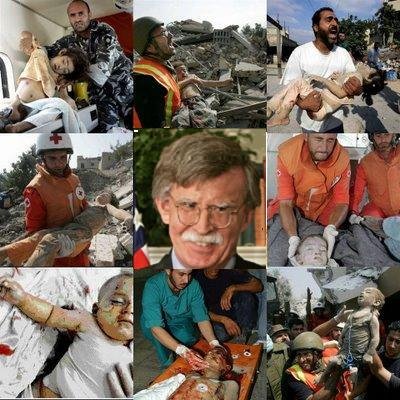 BBC News
BBC News



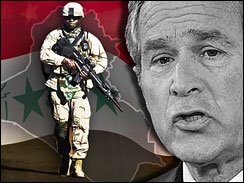


 New York Times March 24, 2007 08:31 PM
New York Times March 24, 2007 08:31 PM 

